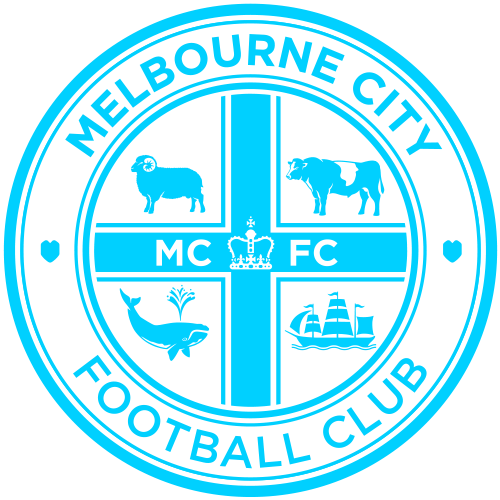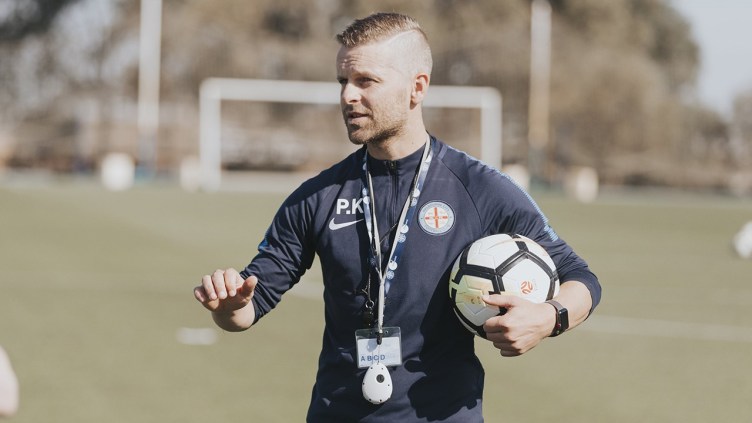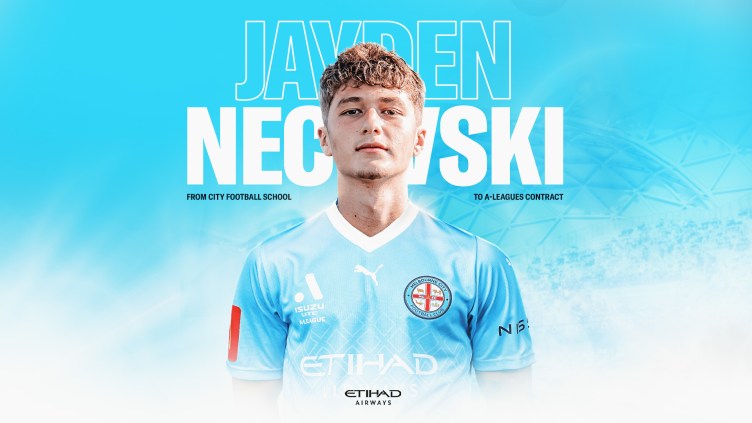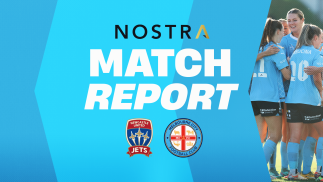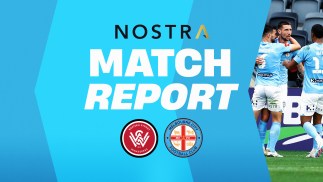Change is one of the great constants in football.
Every offseason, A-League clubs jostle and elbow for position as they seek to re-sign players and bring in fresh talent to jump-start their quest for glory in the coming season. Coaches too are not immune to the winds of change; Melbourne City’s A-League side set to welcome a new Head Coach in the coming weeks.
Transformation, however, is not limited to the ranks of A-League sides.
City’s Senior NPL side has undergone its own metamorphosis in recent months, saying goodbye to a number of senior players as they moved on to pursue other opportunities and welcoming in a host of youngsters from the ranks of the U20 and U18 squads.
Changes have also occurred in the dugout, with long-time, Y-League Championship winning coach Joe Palatsides departing the club and taking up the role of Technical Director of Singapore.
Stepping into the breach to lead the NPL Seniors in Palatsides’ place has been long-time academy coach Petr Kratky.
Taking over a side in transition, Kratky’s first run of games in charge of City’s NPL seniors, unfortunately, coincided with a run of defeats in NPL2 play; City ultimately falling to the bottom of NPL2 Eastern Conference table.
However, two straight draws against Langwarrin SC and Murray United in the past couple of weeks have hinted at a turnaround in form for City; Kratky’s boys taking the lead against both sides before surrendering equalisers.
“From the when we started, week by week we’ve gotten so much better,” Kratky said.
“So, I think the three points will come very, very soon.
“The boys have been working well, following the instructions. Obviously, it’s not easy to play against the men but I’m very pleased to see the boys improving and getting slowly, slowly up to the standards of NPL.
“When I took over, obviously there was some player movement. We had players join the [NPL] seniors, we were starting to build again with the younger players and, again, with the 15, 16-year-olds, it takes time to get them together and get them used to the tempo and physicality of senior football. But these young players are doing very well and improving day by day.
“Unfortunately, everything takes time so we need to just be patient and I’m 100% sure the results and good football will come.
“When we’re analysing the games, we know that with these players the area that we need to improve is the defensive phase of our game.
“They are very good on the ball, moving the ball but in defensive transition and defensive organisation work, how we work without the ball, that’s where we need to improve.
“To improve these individual skills takes time. I think the most important area is that if we stop conceding cheap goals, do that and we’ll be up there straight away.
“So, if you look at that more, we’ll be fine because with the ball they are very good players and they want to play. But football is not just about going forward. There will be games where you won’t keep the ball, there will be games where we have it 50-50 and there will be the defensive part of the game.
“That’s not just in the NPL but in higher and higher levels. So, they as individuals need to learn both parts of the game.”
Already a part of the City organisation and coming in mid-season, Kratky’s ascension to the NPL Head Coaching role hasn’t meant a complete change in system to the ethos that governs City’s play. That’s not to say, though, that he isn’t trying to instil some of his spirit amongst the playing group.
“I love football,” Kratky, who had a long career as a professional footballer in his native Czech Republic, explained.
“I love football and I love to enjoy watching football.
“For the people, when they come, I want people to enjoy it. We want them to want to come and watch Melbourne City play because they play good football, they attack with the ball and they win.
“I’m trying to bring this type of game where they [Kratky’s players] have to understand what the balance between playing football and playing to win but, again, the immaturity of the players takes time to understand the game smarts.
“What I want to bring more is the enjoyment of the game. Attractive football to watch and players who are improving and want to achieve their goals and go higher and higher.
“The challenge of this job is that they’re called seniors, but they are actually 15, 16, 17 years old.
“That’s the challenge for us to understand because we want to play good football, win the games but we have to understand that they are still young kids, so they are not mentally developed enough, some of them, as an adult.
“Some brains develop when they are 20 to 22 so I have to think how I develop the message to 15, 16, 17-year-olds – they’re not a senior A-League player. That’s the hardest part to realise.
“They are not seniors, even if we call ourselves seniors, they are still young players and we have to work with them like that.
“Different type of messages, different language, how they understand.
“That’s the most challenging tool to realise because we play against seniors in senior environments but they’re not that yet. So, we need to be careful about how we manage those players.”
